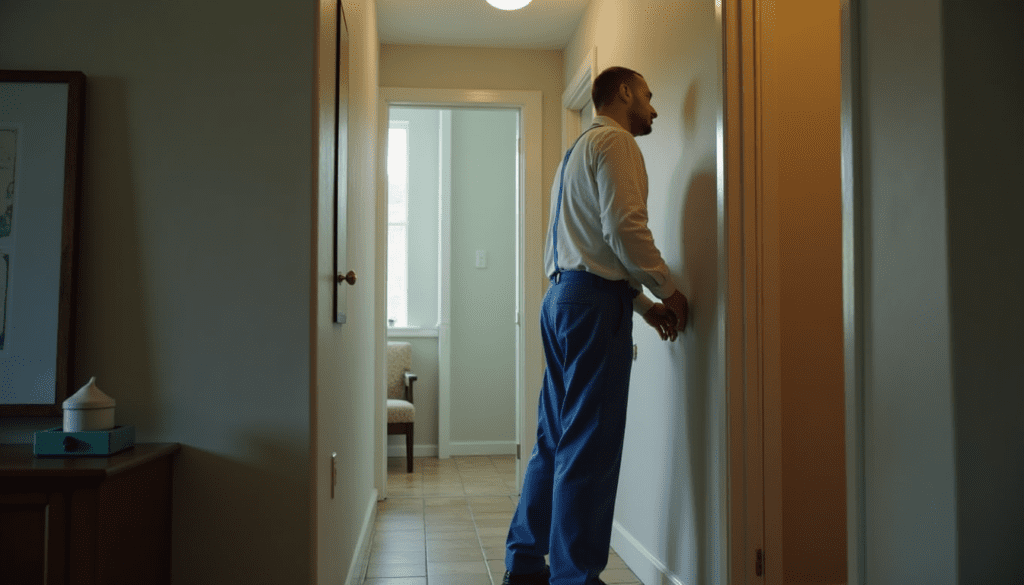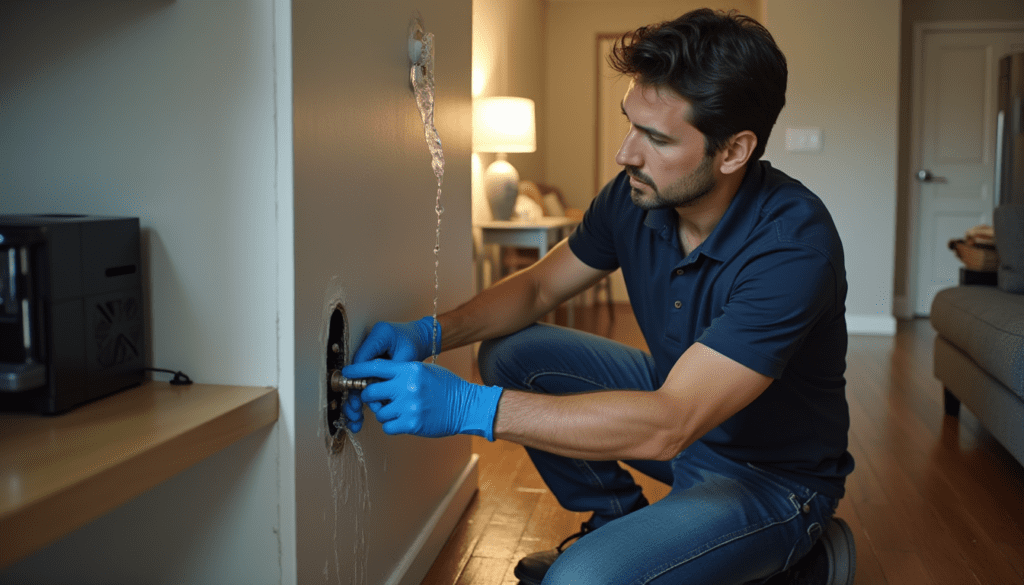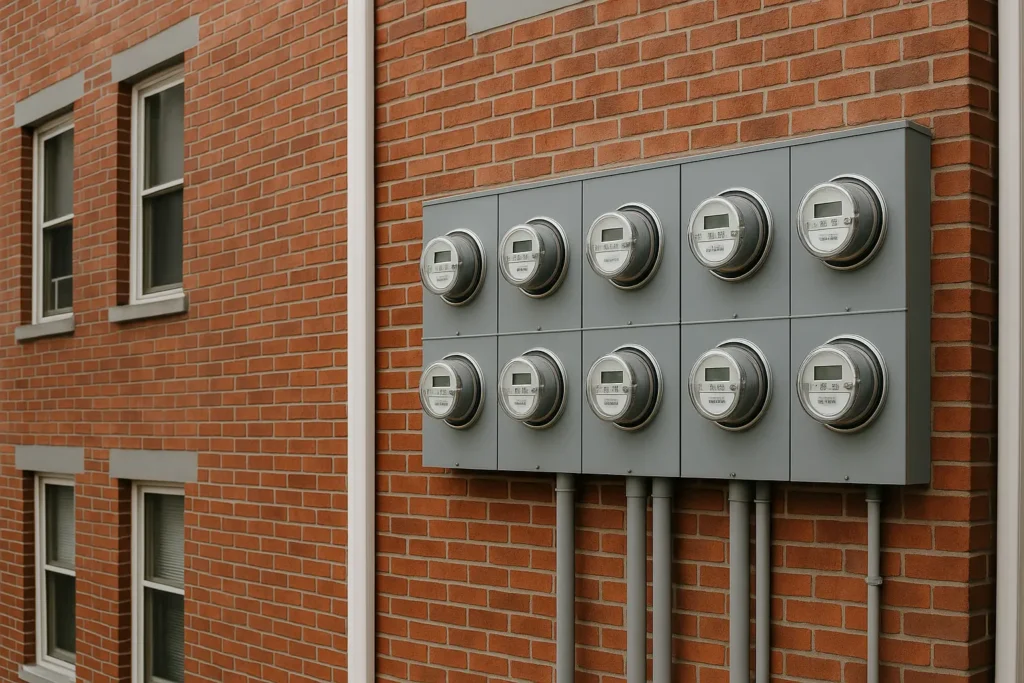1. Introduction
When entering into a rental agreement in Passaic, New Jersey, one crucial but often overlooked aspect of the lease is the responsibility for utilities. Tenants and landlords alike need to understand who pays for what to avoid future misunderstandings and financial strain. Utility bills can add hundreds of dollars to monthly expenses, and how they are divided can significantly influence a tenant’s decision to rent a property—or a landlord’s ability to attract and retain renters. In this blog, we’ll cover everything you need to know about how utility costs are typically handled in Passaic, NJ rentals, and why the lease agreement is your most important reference point.
2. Understanding Utility Responsibilities in Passaic, NJ
Utility responsibilities in rental housing can vary based on the type of property, local ordinances, and most importantly, the terms outlined in the lease. In Passaic, utility responsibilities are generally guided by practical considerations such as how the utilities are metered, who controls them, and what type of building is being rented. If the utilities are separately metered, tenants are more likely to be responsible for their own usage. However, in some older buildings or multi-unit homes where meters are shared, landlords often shoulder the cost, sometimes rolling it into the monthly rent. It’s also essential to consider New Jersey’s housing laws, which require landlords to maintain habitable conditions—including heat, hot water, and essential services—meaning landlords may be required by law to pay for certain utilities under specific conditions.
For example, if the lease doesn’t clearly state that a tenant must pay for heat and the apartment doesn’t allow the tenant control over the thermostat, the landlord would typically be responsible for that utility. Understanding this context is key for both landlords and tenants to avoid conflicts and ensure compliance with housing regulations.
3. Common Utilities in Rental Properties
Whether you’re a tenant looking to move in or a landlord preparing a unit for occupancy, it’s important to be familiar with the types of utilities typically associated with rental properties in Passaic. These commonly include electricity, gas (or oil, in some older homes), water, sewer, trash collection, and in most modern rentals, internet and cable. Each of these can be either included in the rent or billed separately, depending on how the property is set up and the agreement made between the parties.
Electricity is generally the most straightforward utility—if the unit has its own electric meter, the tenant usually pays. The same goes for gas, especially if it’s used for heating or cooking. Water and sewer can go either way depending on whether the unit is individually metered. Trash removal and recycling are usually handled by the municipality and covered by the landlord through property taxes, though this can vary. Lastly, internet and cable TV are typically the tenant’s responsibility since they’re optional and customized services. Knowing which utilities are covered in your lease (and which aren’t) can help you plan your budget more accurately and avoid unpleasant surprises after you move in.
4. Landlord vs. Tenant: Who Pays What?
The division of utility responsibilities between landlords and tenants in Passaic depends heavily on the specifics of each rental situation. In most cases, the lease will clearly define who is responsible for each utility, and it’s crucial for both parties to read and understand this section thoroughly. However, some general patterns exist across different types of rentals. Typically, tenants are responsible for utilities that are individually metered and within their control, such as electricity and gas. These services are consumed based on individual use and don’t affect the rest of the building or other tenants. Internet and cable also fall under this category, as they are services tenants opt into and manage directly.
On the other hand, landlords often cover utilities that are shared among units or necessary for maintaining a habitable living space. For instance, if water is not individually metered in a multi-family building, the landlord will usually pay the bill and factor the cost into the rent. The same goes for heat in some older buildings with centralized heating systems. In those cases, the landlord is required to ensure the unit is adequately heated during the required months (usually October 1 through May 1 in New Jersey) regardless of who pays the utility. Trash collection is also commonly included by the landlord since it is typically part of municipal services billed to the property owner through local taxes.
New Jersey laws require landlords to maintain essential services like hot water, heat, and sometimes even cooking fuel in habitable conditions, depending on the property’s setup. For tenants, this means checking your lease and understanding your rights is not just about budgeting—it’s also about knowing what services you can legally expect to be provided without extra cost.
5. Single-Family vs. Multi-Family Units
The type of property being rented can significantly affect utility responsibilities. In Passaic, tenants who rent single-family homes usually assume full responsibility for all utilities. These properties typically have their own meters for every service, making it easy for utility companies to bill tenants directly for their usage. This arrangement gives the tenant more control over how much they use and pay, but it also means taking on the full weight of monthly utility costs—including services like water, gas, and sometimes lawn care or snow removal depending on the lease agreement.
By contrast, in multi-family buildings—such as duplexes, triplexes, or apartment complexes—utility responsibilities are often shared or split depending on the metering setup. In cases where individual units are not separately metered for water or heat, the landlord usually covers these services and either includes the cost in the rent or breaks it down in a separate billing arrangement. Electricity is still commonly tenant-paid in multi-family units because it’s often individually metered. Tenants should always verify whether a building uses shared meters, as this affects how fair and transparent billing can be.
It’s also worth noting that in multi-family rentals, landlords are more likely to retain responsibility for trash removal and general building maintenance services that benefit all tenants equally. Overall, understanding how the building’s utility systems are structured is just as important as reading the lease—it’s often the deciding factor in who pays what.
Looking to simplify utility management in your rental? Whether you’re a tenant unsure of your obligations or a landlord needing clarity, contact RentShield Property Management for expert guidance and hands-on support in the Passaic area.
6. Lease Agreements and Utility Clauses
The lease agreement is the most authoritative source when it comes to determining who pays for utilities in a rental situation. In Passaic, NJ, as with most areas, leases must specify the division of utility responsibilities to avoid ambiguity. A well-drafted lease will outline not just who pays for what, but also how payments are to be made, what happens if bills go unpaid, and whether estimates or flat rates are used for certain utilities. Tenants should always review this section in detail before signing. If you are unsure of any language or clause, it’s smart to ask questions or even seek legal clarification.
Some leases include “utility caps” for landlord-paid services, especially in multi-family buildings. This means the landlord agrees to cover utilities up to a certain dollar amount per month, and the tenant must cover any excess. In other agreements, landlords may collect a fixed utility fee along with rent, creating predictable monthly costs for the tenant but potentially obscuring actual usage. As a best practice, both landlords and tenants should ensure utility clauses are updated annually or upon lease renewal to reflect changes in service rates or utility providers.
7. Shared Meters and Utility Allocation
One often overlooked but critical issue in Passaic rentals is the presence of shared utility meters, especially in older or multi-unit properties. Shared meters mean that two or more units draw from the same source, making it impossible to distinguish how much of a utility was used by a specific tenant. This situation can create complications in billing and disputes if not addressed clearly in the lease. New Jersey state law requires transparency and fairness when it comes to utility billing. If landlords wish to pass these shared utility costs to tenants, they must provide written notice and often a breakdown of the calculation method used to divide the bill.
There are various methods for utility allocation in shared meter situations. Some landlords divide the cost equally among units, while others allocate based on square footage or number of occupants. Each method has its pros and cons, but the most important factor is that the calculation must be agreed upon in writing. If you’re a tenant, don’t hesitate to ask how shared utilities are calculated before signing a lease. If you’re a landlord, be proactive about explaining this upfront to avoid disputes and ensure legal compliance.
8. Water and Sewer Charges in Passaic
Water and sewer services in Passaic are typically handled by the Passaic Valley Water Commission and local municipal utilities. These services are often paid by landlords in multi-family buildings because many properties don’t have separate water meters for each unit. In these cases, landlords either absorb the cost or include it in the rent. However, in single-family homes or newer buildings with individual meters, tenants are usually responsible for their own water usage. The average monthly water and sewer bill in Passaic can range from $50 to $100, depending on the number of occupants and usage habits.
Another factor to consider is water conservation. Some landlords encourage or even require low-flow fixtures or water-saving practices to reduce utility costs. Tenants should check if their lease mentions any specific guidelines or conservation expectations. And for landlords, it’s important to stay on top of billing cycles and meter readings to ensure costs are being managed properly. Delayed billing or misread meters can lead to unexpected expenses or disputes at the end of a lease term.
9. Electricity and Gas Responsibilities
Electricity and natural gas are among the most variable utility costs in rental housing, largely due to seasonal changes and tenant usage habits. In almost all Passaic rentals, electricity is individually metered and paid directly by the tenant. This includes usage for lighting, appliances, air conditioning, and in some cases, electric heating. Tenants should be aware of local rates and seasonal fluctuations. For example, electricity bills often spike during the summer when air conditioners are running more frequently, while gas bills increase during the winter due to heating needs.
Natural gas is used for heating, hot water, and cooking in many Passaic rental units. If a unit has its own gas meter, the tenant is responsible for paying the gas bill. However, in properties with central boilers or shared systems, the landlord usually covers the cost and either builds it into the rent or charges tenants separately through a utility reimbursement process. When leasing a unit, tenants should always confirm whether gas heating is used and if they are expected to pay the bill. Clarity here can make a major difference in monthly budgeting, especially in colder months.
10. Internet, Cable, and Other Services
In today’s connected world, internet and cable are often viewed as essential services, even though they’re technically optional. In nearly all rental arrangements in Passaic, NJ, tenants are responsible for setting up and paying for their own internet and cable services. These services are customized to the tenant’s preferences—such as speed, provider, and package—making them impractical for landlords to manage. That said, some modern apartment buildings may offer “bundled” packages where internet or cable is included as part of the rent, usually through a building-wide service agreement.
Tenants should be proactive in arranging internet and cable services ahead of their move-in date to avoid delays or activation fees. It’s also helpful to check whether the building is wired for fiber optics, coaxial cable, or DSL, as this will determine which providers are available. For landlords, offering high-speed internet as part of a rental incentive can attract tech-savvy tenants, especially remote workers and students. Just be sure to clearly define what’s included and who is responsible for service calls or upgrades during the lease term.
Want to streamline utility billing and avoid disputes? Whether you’re renting out property or signing a new lease in Passaic, RentShield Property Management can help you clarify utility arrangements and stay compliant with local laws.
11. Legal Framework and Tenant Rights
In Passaic and across New Jersey, tenants have strong protections under state law when it comes to utilities. One of the most important legal standards is the right to a habitable living environment, which includes access to essential services like heat, hot water, and electricity. If a landlord fails to provide these, tenants can file a complaint with the local housing authority or take legal action. New Jersey law also prevents landlords from shutting off utilities to force tenants to leave or as retaliation for complaints.
Tenants should know: If you are paying utilities and they are disconnected due to a landlord’s negligence—such as failing to repair a heating unit—you may be entitled to rent relief or even damages. On the flip side, landlords must ensure lease agreements are transparent and legal when assigning utility responsibilities. Failing to meet this standard can lead to lawsuits or tenant claims.
Tip: Always keep copies of utility bills and written communication with your landlord about utility issues. Documentation is your best defense if legal concerns arise.
12. Public Housing and Utility Inclusions
Utility responsibilities can differ significantly in subsidized housing or public housing developments in Passaic. In most Section 8 or HUD-assisted housing, some or all utilities are included as part of the subsidy calculation. When utilities are not included in the rent, tenants usually receive a utility allowance to help cover these costs. The specifics will depend on the housing program and the agreement with the housing authority.
Public housing tenants should carefully review their lease and talk with their caseworker to confirm which utilities they are responsible for. If you’re uncertain whether the allowance covers your actual usage, it’s wise to ask for clarification early so there are no shortfalls later. On the landlord’s side, it’s important to accurately report what utilities are included to avoid violations that could impact your participation in federal programs.
13. Assistance Programs for Utility Payments
Utility bills can be unpredictable—especially during extreme weather—and some renters in Passaic may struggle to keep up. Thankfully, there are several utility assistance programs in New Jersey that help low- to moderate-income households pay heating, electric, and water bills.
- LIHEAP: The Low-Income Home Energy Assistance Program helps cover heating costs during the winter.
- Universal Service Fund (USF): Assists with electric and gas bills to keep monthly utility costs under a set percentage of income.
- New Jersey SHARES: Offers emergency relief for households who don’t qualify for federal aid but are experiencing a crisis.
Landlords and property managers can be a helpful resource by informing tenants of these programs or providing the required documentation. For tenants, applying early is key, especially during high-demand seasons. You can often apply online or through your local community action agency.
14. Best Practices for Landlords and Tenants
To avoid disputes and keep utility arrangements clear, both landlords and tenants in Passaic should follow a few key best practices. First, everything should be in writing. Utility responsibilities should be detailed in the lease, including how payments are made, what services are included, and any billing caps or reimbursements.
For landlords: Consider conducting a walk-through with the tenant before move-in to show where meters are located and how systems work. This helps establish transparency and trust. Use a simple chart or checklist to break down which utilities are tenant-paid versus landlord-covered.
For tenants: Take time to review monthly usage and understand which bills you are responsible for. If you’re unclear on something, ask before signing. It’s better to confirm up front than to be surprised when your first utility bill arrives.
15. Frequently Asked Questions
Q: Are landlords in Passaic required to pay for water?
A: Not necessarily. It depends on the building and lease. In multi-family buildings without individual meters, landlords often pay. In single-family homes, tenants usually pay.
Q: What if my lease says I pay for gas, but there’s no meter?
A: That may be a red flag. You should ask the landlord how usage is measured or request clarification in writing. If no fair allocation method is in place, it could be a lease violation.
Q: Can a landlord bill me separately for utilities not mentioned in the lease?
A: Generally, no. Landlords cannot introduce new charges after the lease is signed without a written amendment. All utility responsibilities should be clearly listed from the start.
Q: Are utility bills higher in winter?
A: Yes, especially for units with gas or electric heating. Expect higher usage and plan ahead by asking previous tenants or landlords for seasonal estimates.
16. Conclusion and Key Takeaways
In Passaic, NJ, utility responsibilities vary widely depending on the rental property, meter setup, and lease agreement. The most important rule for both landlords and tenants is: clarity is everything. Always review the lease thoroughly, ask questions when unsure, and confirm who pays for what before signing. Understanding utility responsibilities helps avoid unexpected costs and promotes better landlord-tenant relationships.
Whether you’re a landlord managing multiple units or a tenant searching for your next home, knowing the ins and outs of utility billing is essential for financial planning and legal protection. By following best practices and staying informed, you’ll make smarter rental decisions in the Passaic market.
Still have questions about utility responsibilities or lease terms? Contact RentShield Property Management today for expert local guidance and property management services tailored for Passaic, NJ landlords and renters.






